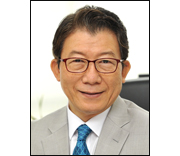-
[November 15. 2016 Korea times] World Bank's advice on FDI policy
- Date : 2016.11.17
- Views : 1255
World Bank's advice on FDI policy

By Jeffrey I. Kim
The World Bank is keen on the flow of FDI as it believes that this brings substantial benefits to bear on the world economy and particularly on the economies of developing countries. The benefits to the host country include easier access to world markets, transfer of capital, technology, and managerial skills. The World Bank was initially called the IBRD (the International Bank for Reconstruction and Development). The IBRD was founded in December 1945. Later it was expanded to the World Bank which consists of the IBRD and the IDA (International Development Association).
The World Bank has been further expanded to the World Bank Group (WBG) which accommodates three more organizations ― the IFC (the International Finance Corporation), MIGA (the Multilateral Investment Guarantee Agency), and the ICSID (the International Centre for Settlement of Investment Disputes). As of May 2016 all of the 193 UN members and Kosovo are WBG members.
The World Bank has a multidisciplinary staff of more than 9,000 employees from more than 160 countries. The World Bank provides huge amounts of loans at preferential rates to developing countries. The Bank’s headquarters is in Washington D.C.
Last month I visited Washington D.C. The World Bank invited me to attend its Investment Policy Forum, Enabling Investment Retention and Expansion. The purpose of the Forum was to maximize the investment potential of international trade and investment agreements. To realize the maximum benefit of FDI, the World Bank believes, not merely should foreign investment stay on in the host country but its size should also be expanded. To make this task possible for their client countries, namely developing countries, the Bank is trying to design a coherent investment policy and promotion strategy that can be adopted by their client governments.
The World Bank highly recognizes the outstanding performance of Korea’s Foreign Investment Ombudsman system in attracting and expanding FDI. The Bank wants its member countries to adopt the Korean ombudsman system. The Bank recommends that the economies of developing countries should emulate Korea’s strategy to induce FDI and to continually expand it. The World Bank’s specialists praise Korea’s FDI policy that Korea Trade-Investment Promotion Agency (KOTRA) focuses on the attraction of FDI while the Ombudsman resolves the grievances of foreign investors in Korea.
According to the Bank’s observations, many developing countries attract foreign-invested companies but many of them also leave the host countries after they realize that the various incentives promised by the host governments disappeared and that there was no place to go for consultation or appealing when they encounter unexpected problems and difficulties except that they need to go to the host country’s court system by using expensive lawyer service. But the Bank people say that Korea is different. It has the ombudsman system which provides necessary service for foreign investors, the moment they start operating business in Korea. Very recently the World Bank has released an annual report on the ranking of “Doing business with ease” for member countries. Korea ranks fifth in the world.
It is true that the Ombudsman’s Office provides after-care service for new foreign investors from the time they arrive at the airport. The Ombudsman’s Office staff even makes trip to the airport to welcome them and take them to their hotel for check-in. This is called “a red carpet service.” On top of this, the “home doctors” in the Ombudsman’s Office provide the new foreign investors with needed information and resolve their problems and grievances. Pursuant to the foreign investment promotion act, the Ombudsman’s Office makes recommendations to the government to change the outdated and unjustifiable laws and regulations that are hampering their business operations.
The World Bank’s Forum was ended by reviewing the result of the Bank’s recent research on the failures of FDI in developing countries. The research team points out that macroeconomic stability and political stability are two principal factors that foreign investors consider for investment in a developing country.
However, global economic conditions are expected to change significantly from next year when the world is to be affected by the leadership of the new US President, Mr. Trump.
Although Korea is not a developing country, it should take heed at this time that potential macroeconomic instability and political risk would not bring about an economic failure, not to mention an FDI failure.
http://www.koreatimes.co.kr/www/news/opinon/2016/11/198_218156.html










